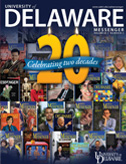Self-esteem differences linked to materialism

RESEARCH | Ji Kyung Park, assistant professor of marketing, has been recognized for her research on consumer behavior and the psychological factors that play into materialism.
She received the C.W. Park Young Contributor Award for 2012 from the Journal of Consumer Psychology and the Society for Consumer Psychology. The annual award recognizes the scholar with the best first-authored publication in the journal among those who have not yet passed their second year of professorship in the marketing discipline.
Park's paper, "More than Meets the Eye: The Influence of Implicit versus Explicit Self-Esteem on Materialism," began with past research suggesting that people with low self-esteem and insecurity are more likely to have materialistic tendencies. Her paper more closely examined two forms of self-esteem—implicit (unconscious evaluations of the self) and explicit (conscious evaluations of the self)—and explored how discrepancies between the two drive materialism.
To reduce self-esteem discrepancies, Park says, consumers try to improve themselves through material possessions.
"Individuals with high explicit self-esteem are viewed as less materialistic than those with low explicit self-esteem," she says. "However, if an individual with high explicit self-esteem had low implicit self-esteem, I predict that individual would be more materialistic than someone with low explicit self-esteem and low implicit self-esteem."
As a result, according to her work, there is more than meets the eye when it comes to understanding materialism.
"The inconsistencies between explicit and implicit attitudes we hold about ourselves point to why material goods are a salient part of consumer culture," Park says.





